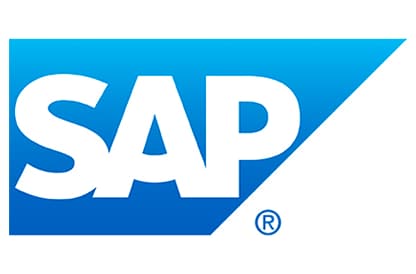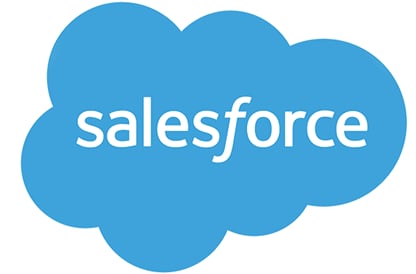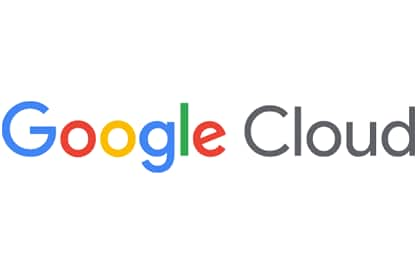Why OpenText
Why OpenText
Overview Why OpenText
OpenText brings decades of expertise to help you unlock data, connect people and processes, and fuel AI with trust
Manage and connect data
Unify data seamlessly across your enterprise to eliminate silos, improve collaboration, and reduce risks
AI-ready information
Get AI-ready and transform your data into structured, accessible, optimized information
Built-in security and compliance
Meet regulatory and compliance requirements and protect your information throughout its lifecycle
Empowering people
Overview Empowering people
OpenText helps people manage content, automate work, use AI, and collaborate to boost productivity
Customers
See how thousands of companies around the world are succeeding with innovative solutions from OpenText
Employees
Our people are our greatest asset; they are the life of the OpenText brand and values
Corporate Responsibility
Learn how we aspire to advance societal goals and accelerate positive change
Partners
Find a highly skilled OpenText partner with the right solution to enable digital transformation
How we compare
Content Management
Service Management
Deploy anywhere
Overview Deployment options
Explore scalable and flexible deployment options for global organizations of any size
Sovereign cloud
Local control. Global scale. Trusted AI
Private cloud
Your cloud, your control
On-premises
Free up resources, optimize performance and rapidly address issues
Public cloud
Run anywhere and scale globally in the public cloud of your choice
AI leadership
Overview Aviator AI
See information in new ways
OpenText™ Aviator™ AI
AI that understands your business, your data, and your goals
OpenText™ MyAviator
Say hello to faster decisions. Your secure personal AI assistant is ready to get to work
OpenText™ Business Network Aviator™
Gain better insights with generative AI for supply chains
OpenText™ Content Aviator™
Power work with AI content management and an intelligent AI content assistant
OpenText™ Cybersecurity Aviator™
Improve your security posture with AI cybersecurity and agile threat detection
OpenText™ DevOps Aviator™
Enable faster app delivery, development, and automated software testing
OpenText™ Experience Aviator™
Elevate customer communications and experiences for customer success
OpenText™ Service Management Aviator™
Empower users, service agents, and IT staff to find the answers they need
Aviator AI
Overview Aviator AI
See information in new ways
OpenText™ Aviator™ AI
AI that understands your business, your data, and your goals
OpenText™ MyAviator
Say hello to faster decisions. Your secure personal AI assistant is ready to get to work
OpenText™ Business Network Aviator™
Gain better insights with generative AI for supply chains
OpenText™ Content Aviator™
Power work with AI content management and an intelligent AI content assistant
OpenText™ Cybersecurity Aviator™
Improve your security posture with AI cybersecurity and agile threat detection
OpenText™ DevOps Aviator™
Enable faster app delivery, development, and automated software testing
OpenText™ Experience Aviator™
Elevate customer communications and experiences for customer success
OpenText™ Service Management Aviator™
Empower users, service agents, and IT staff to find the answers they need
Analytics
Overview Analytics
Predict, act, and win with real-time analytics on a smarter data platform
Business Network
Overview Business Network
Connect once, reach anything with a secure B2B integration platform
Content
Overview Content
Reimagine knowledge with AI-ready content management solutions
OpenText™ Content Aviator™(AI)
Supercharge intelligent workspaces with AI to modernize work
Cybersecurity
Overview Cybersecurity
Integrated cybersecurity solutions for enterprise protection
OpenText Cybersecurity for SMBs & MSPs
Purpose built data protection and security solutions
OpenText™ Cybersecurity Aviator™(AI)
Reinvent threat hunting to improve security posture with the power of agile AI
DevOps
Overview DevOps
Ship better software—faster—with AI-driven DevOps automation, testing, and quality
Experience
Overview Experience
Reimagine conversations with unforgettable customer experiences
Observability and Service Management
Overview Observability and Service Management
Get the clarity needed to cut the cost and complexity of IT operations
OpenText™ Service Management Aviator™(AI)
Redefine Tier 1 business support functions with self-service capabilities from private generative AI
APIs
Overview APIs
Build custom applications using proven OpenText Information Management technology
OpenText™ API Services
Build it your way with OpenText Cloud APIs that create the real-time information flows that enable custom applications and workflows
Device and Data Protection
Overview Device and Data Protection
Protect what matters, recover when it counts
Unified Endpoint Management Tools
- OpenText™ Endpoint Management
- OpenText™ ZENworks Suite
- OpenText™ ZENworks Service Desk
- OpenText™ ZENworks Configuration Management
- OpenText™ ZENworks Endpoint Security Management
- OpenText™ ZENworks Full Disk Encryption
- OpenText™ ZENworks Endpoint Software Patch Management
- OpenText™ ZENworks Asset Management
Solutions
Trusted Data & AI
Overview Trusted Data & AI
Secure information management meets trusted AI
OpenText AI Data Platform
A unified data framework to elevate data and AI trust
OpenText™ Aviator Studio
A place where you can build, deploy, and iterate on agents in your data's language
OpenText Discovery
A set of tools to help ingest data and automate metadata tagging to fuel AI
OpenText Data Compliance
A suite of services and APIs that make governance proactive and persistent
OpenText Aviator AI Services
Professional services experts who help you on your AI journey
Information Reimagined
Overview Information Reimagined
Get greater visibility and sharper insights from AI-driven information management. Ready to see how?
Knowledge reimagined
Transform daily work with enterprise content management powered by AI
Service Management reimagined
Cut the cost and complexity of IT service management, AIOps, and observability
Connections reimagined
AI-powered B2B integration for supply chain success
Conversations reimagined
Drive value, growth, and loyalty with connected customer experiences
Engineering reimagined
Agile development and software delivery? It only seems impossible
Security reimagined
Cybersecurity for the Enterprise
Decisions reimagined
Unlock insights with AI data analytics
Artificial Intelligence
Overview Aviator AI
See information in new ways
OpenText™ Aviator™ AI
AI that understands your business, your data, and your goals
OpenText™ MyAviator
Say hello to faster decisions. Your secure personal AI assistant is ready to get to work
OpenText™ Business Network Aviator™
Gain better insights with generative AI for supply chains
OpenText™ Content Aviator™
Power work with AI content management and an intelligent AI content assistant
OpenText™ Cybersecurity Aviator™
Improve your security posture with AI cybersecurity and agile threat detection
OpenText™ DevOps Aviator™
Enable faster app delivery, development, and automated software testing
OpenText™ Experience Aviator™
Elevate customer communications and experiences for customer success
OpenText™ Service Management Aviator™
Empower users, service agents, and IT staff to find the answers they need
Industry
Overview Industry solutions
Improve efficiency, security, and customer satisfaction with OpenText
Energy and resources
Transform energy and resources operations with cloud, cybersecurity, and AI
Financial services
Boost customer experience, compliance, and efficiency with AI
Government
Reimagine your mission with government-secure information management
Healthcare and life sciences
Improve care delivery and patient engagement with AI-powered solutions
Legal
Modernize legal teams with automated, AI-powered legal tech solutions
Manufacturing
Modernize manufacturing operations and logistics to reduce costs and ensure compliance
Retail and consumer goods
Enhance consumer engagement with omnichannel retail solutions and AI
Enterprise Application
Overview Solutions for Enterprise Applications
Run processes faster and with less risk
Services
Services
Overview Services
Achieve digital transformation with guidance from certified experts
Professional Services
Modernize your information management with certified experts
Customer Success Services
Meet business goals with expert guidance, managed services, and more
Support Services
Turn support into your strategic advantage
Managed Services
Free up your internal teams with expert IT service management
Learning Services
Discover training options to help users of all skill levels effectively adopt and use OpenText products
Professional Services
Overview Professional Services
Modernize your information management with certified experts
Customer Success Services
Overview Customer Success Services
Meet business goals with expert guidance, managed services, and more
Support Services
Overview Support Services
Turn support into your strategic advantage
Managed Services
Overview Managed Services
Free up your internal teams with expert IT service management
Learning Services
Overview Learning Services
Discover training options to help users of all skill levels effectively adopt and use OpenText products
Partners
Find a Partner
Overview Find a partner
Find a highly skilled OpenText partner with the right solution to enable digital transformation
Cloud Partners
Overview Cloud Partners
OpenText partners with leading cloud infrastructure providers to offer the flexibility to run OpenText solutions anywhere
Enterprise Application Partners
Overview Enterprise Application Partners
OpenText partners with top enterprise app providers to unlock unstructured content for better business insights
Partner Solutions
Overview Partner Solutions
Discover flexible and innovative offerings designed to add value to OpenText solutions
Resources for Partners
Overview Resources for Partners
Discover the resources available to support and grow Partner capabilities
Support
Overview Customer Support
Get expert product and service support to accelerate issue resolution and keep business flows running efficiently
Resources
Overview Resources
Explore detailed services and consulting presentations, briefs, documentation and other resources
Choose your region:
Europe, Middle East and Africa
Asia–Pacific
 Citizens Energy Group
Citizens Energy Group
Saves time and effort, and keeps technical staff focused on strategic objectives by enabling business users to test mission-critical software

About Citizens Energy Group

-
Population served:900,000
-
Founded:1887
Summary
Challenges
- Manually smoke testing new releases of critical applications took around 20 hours.
- Software testing was stealing time and focus from strategic projects.
Solution
- Working with OpenText and iLAB to deploy OpenText™ Functional Testing (UFT One).
- Automating and streamlining existing manual tests.
Results
92.5% reduced time to execute testing
Empowered business experts to accomplish tech goals
75% reduced time required to create test scripts
Challenges
- Manually testing software was taking too long and stealing focus
- Software testing represented an inefficient use of budget and resources
To minimize the risk of wasteful, costly, and potentially dangerous leaks of natural gas, Citizens rigorously inspects and monitors its extensive network of pipelines and valves. In addition to assuring the safe and reliable delivery of natural gas to customers, this work helps Citizens comply with the US Federal Government’s Pipeline Safety Improvement Act of 2002. The organization uses an Esri application called ArcGIS Field Maps to help its field operatives plan, manage, and report on their inspections. Field Maps is integrated with other geospatial apps in the Esri portfolio to help Citizens issue alerts and execute remediation activities in the event of a significant leak.
John Anderson, manager of IT PMO at Citizens Energy Group, said, “Public safety is paramount to Citizens, and Field Maps is a vital link in the chain, helping our field technicians plan their inspections efficiently and report back on any issues. As with any other software product, there are ongoing updates and fixes, and these need to be thoroughly tested to ensure that new releases work as expected right away. Within a broader initiative around automation, we wanted to streamline the testing process for Field Maps.”
Joe McKamey, CSM - IT product owner GIS at Citizens Energy Group, added, “Testing software requires time, effort and skill. Manually smoke testing new releases of Field Maps took around 20 hours and stole time and focus from more strategically important projects. This was not an efficient use of our budget or resources.”
Through test automation, Citizens aimed to reduce the need for software engineers to get involved in routine testing, driving shorter cycle times and higher quality with less human effort.

With OpenText Functional Testing, a person who understands the business process can develop effective test scripts even if they have no software-engineering skills whatsoever.
Solution
To help its software testers save time and effort, and to keep technical staff focused on strategic objectives, Citizens Energy chose OpenText Functional Testing One for the streamlining and automation of functional testing.
Product deployed:
-
OpenText™ Functional Testing
Accelerates and simplifies end-to-end functional testing by automating tests for enterprise apps using embedded AI-based capabilities
Choosing a new functional testing solution
Citizens engaged iLAB, a worldwide leader in software quality assurance, to help find a test automation solution for Field Maps. Kevin Copple, director, Technology and Support Services at iLAB, said, “We used Gartner’s Magic Quadrant to identify the leading contenders, and we studied 19 projects over the course of a month before shortlisting OpenText Functional Testing and one other product as the only two capable of meeting the functional requirements. When measured in terms of price, usability and flexibility, OpenText Functional Testing was the clear winner. A further advantage was the option to deploy on-prem: Citizens’ security requirements essentially ruled out a SaaS deployment.”
OpenText Functional Testing is an AI-powered functional testing tool that works across desktop, web, mobile, mainframe, composite, and packaged enterprise-grade applications. Following a rapid implementation, iLAB personnel started developing test scripts and transferring skills to business users at Citizens. “With OpenText Functional Testing, a person who understands the business process can develop effective test scripts even if they have no software-engineering skills whatsoever,” said Joe McKamey. “In other words, rather than taking an engineer away from another project and explaining the business process to them, the person who knows the product can build the scripts themselves. That makes for much shorter cycle times, so that field operatives can use the new software in production without delay.”
Streamlining and automating tests
Wherever possible, iLAB has broken down the existing manual tests into smaller, simpler test actions. The automation scripts then call multiple actions in sequence, assembling them into more complex frameworks. This atomized approach provides basic test building blocks that can be reassembled to meet any new requirement. It also makes test scripts far easier to maintain. Instead of laboriously making the same change to multiple scripts, Citizen can update a single action and have it automatically propagate to all scripts that call on that action.
iLAB is now working to transfer the use of OpenText Functional Testing to the internal team at Citizens; business users at Citizens will soon be largely autonomous in using the solution to manage testing for Field Maps.
OpenText Functional Testing has already delivered great benefits in speed and reusability, and has helped free up our engineers to focus their expertise on other projects.
Results
Through faster and more efficient functional testing with OpenText Functional Testing, Citizens Energy can focus its technical specialists on strategically important projects.
92.5% reduced time to execute testing
The introduction of OpenText Functional Testing significantly accelerated the testing of Field Maps. Manual testing that previously took 20 hours to complete is now automatically executed within just an hour and a half; a 92.5 percent reduction. What’s more, testing typically involves just a single person, versus multiple people before OpenText Functional Testing.
Empowered business experts to accomplish technology goals
“In addition to completing tests faster, we have empowered the business people who understand the application logic to handle tasks that previously required an engineer,” said John Anderson. “That’s much more efficient for the organization as a whole, and it means we can focus our internal talents on the most appropriate and beneficial activities.”
OpenText Functional Testing gives Citizens far greater flexibility in testing, because the organization is no longer dependent on engineers with specialist technical skills. Business users can rapidly develop scripts that work seamlessly across multiple platforms. And if a small issue emerges – perhaps a single action that fails in a 100-line test – the organization can call in a software engineer to resolve that specific action in a very targeted way. “With OpenText Functional Testing, you don’t just get AI and natural-language interpretation, you also have the option to use a traditional coded environment that would be more familiar to a software engineer,” said Kevin Copple.
The automation of testing will improve software quality over time by enabling more tests to be executed within the same timeframes, and by reducing the possibility of human error. OpenText Functional Testing automatically preserves a full audit trail with screenshots, reducing the compliance burden on human testers and increasing the scalability of the testing process.
75% reduced time required to create test scripts
Based on iLAB’s experience with OpenText Functional Testing, developing an AI-based, OCR-powered script takes on average about 25 percent of the time required to develop a traditional object-based script. And thanks to the atomized approach based on test actions, whenever something changes, Citizens will be able to find and update a handful of relevant base actions, rather than having to manually update potentially hundreds of complex test scripts. With OpenText Functional Testing, testing scripts are also naturally resilient to minor changes in the software being tested. For example, if the order of objects – such as fields on a web page – changes, the software is able to scan the page, find the displaced element, and continue without interruption.
iLAB took advantage of the Insight feature of OpenText Functional Testing to enable scripts to recognize application objects based on what they look like rather than based on properties that are part of their design. For an item such as a logo embedded in a background image, which may not be successfully identified as an ordinary image or as text, OpenText Functional Testing can identify and validate it as an InsightObject. “InsightObject is really useful because it gives us the flexibility to compare a screenshot with the targeted image to make sure that the application is representing what’s supposed to be on screen at that time,” said Joe McKamey.
On iLAB’s recommendation, Citizens invested in concurrent licenses for OpenText Functional Testing, so that it can share the software between different users and projects more easily. This gives the organization the option to use the OpenText solution across the rest of its Esri portfolio and other applications in the future, or for testing its back-end infrastructure. John Anderson concluded, “OpenText Functional Testing has already delivered great benefits in speed and reusability, and has helped free up our engineers to focus their expertise on other projects. The solution enables the people who understand the business side of things to accomplish what they need on the technology side. We’d like to extend these capabilities across the organization, so that we can maximize the speed and efficiency of software testing.”





